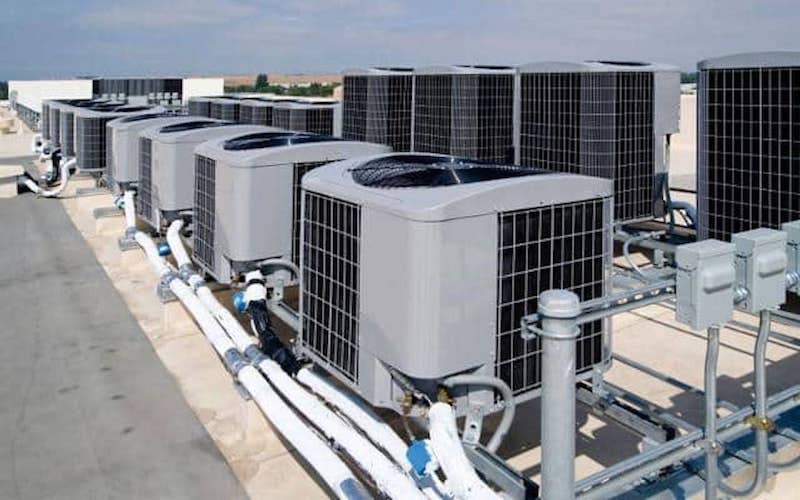How typically do I want to switch my HVAC system?

The lifespan of an HVAC (Heating, Ventilation, and Air Conditioning) system can differ relying on a number of components, including the kind of system, how nicely it's maintained, and the quality of the unique set up. Here are some basic tips on how typically you might need to switch your HVAC system:
Furnace: The common lifespan of a gas or electrical furnace is often round 15-20 years. With proper upkeep, a furnace can last more, however it might become much less energy-efficient as it ages.
Air Conditioner: Air conditioning units typically have an identical lifespan to furnaces, round 15-20 years. Regular maintenance can help prolong the life of your AC system.
Heat Pump: Heat pumps can final between 10 and 15 years. Their lifespan can be influenced by elements like climate and how usually they switch between heating and cooling modes.
Boiler: Boiler methods are known for their durability, and so they can final anywhere from 20 to 35 years with correct maintenance. High-quality boilers are likely to have longer lifespans.
Ductless Mini-Split Systems: Ductless mini-split systems can final 10-20 years or extra. The high quality of the system and common upkeep can affect its longevity.
https://coyotecountry-hvac.com/ to notice that these are tough estimates, and the precise lifespan of your HVAC system could differ. To maximize the lifetime of your HVAC system and guarantee it runs efficiently, regular upkeep is crucial. Annual or biannual check-ups by an expert HVAC technician might help determine and handle points before they turn into main issues.
When considering whether to exchange your HVAC system, a quantity of elements come into play:

Energy Efficiency: Newer HVAC methods are often more energy-efficient, which can lead to lower utility payments. Replacing an older, less efficient system with a extra moderen one may find yourself in cost financial savings over time.
Frequent Repairs: If your system requires frequent and costly repairs, it could be cheaper to replace it, particularly if it's nearing the end of its expected lifespan.
Improved Comfort and Features: Newer HVAC techniques might supply higher temperature control, improved indoor air high quality, and superior options like smart thermostats and zoning capabilities, enhancing your overall consolation and convenience.
Environmental Considerations: Older HVAC techniques might use refrigerants or technologies that are less environmentally pleasant. Upgrading to a more eco-friendly system can be an moral selection.
Home Renovations or Additions: If you are expanding your personal home or present process main renovations, you may want to exchange or upgrade your HVAC system to accommodate the increased heating and cooling wants.
When considering a substitute, it's advisable to consult with an HVAC skilled who can assess your present system's condition, your specific needs, and provide suggestions based mostly in your price range and long-term targets. Replacing an HVAC system is a major investment, but it could result in improved comfort, vitality savings, and peace of mind..
